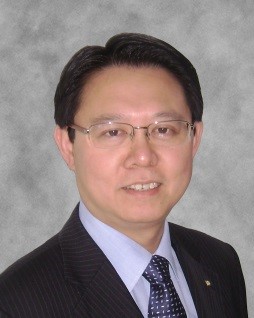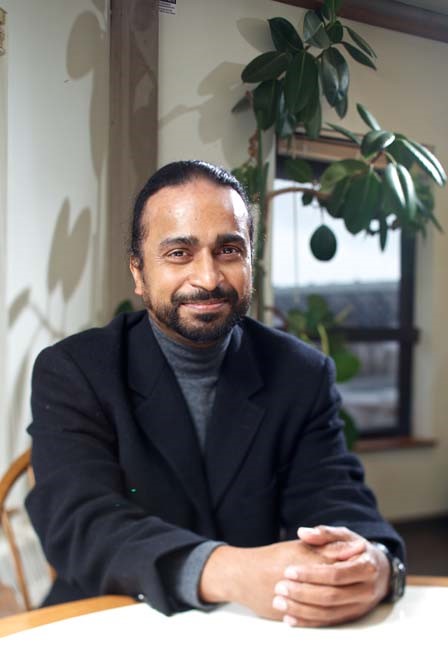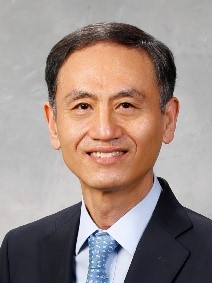
RMIT University, Australia

Professor Xinghuo Yu is an Associate Deputy Vice-Chancellor and Distinguished Professor at RMIT University (Royal Melbourne Institute of Technology), Melbourne, Australia. He chairs RMIT Professorial Academy. He is the President of IEEE Industrial Electronics Society (2018-2019), and a Non-Executive Director of Oceania Cyber Security Centre Limited. He received BEng and MEng degrees from the University of Science and Technology of China, Hefei, China, in 1982 and 1984, and PhD degree from Southeast University, Nanjing, China in 1988, respectively. He started his professional career in 1989 as a Postdoctoral Fellow with the University of Adelaide, Adelaide, Australia. In 1991, he joined Central Queensland University, Rockhampton, Australia, where, before he left in 2002, he was Chair Professor of Intelligent Systems. Since 2002, he has been with RMIT University, where he held various senior academic and managerial positions. His main research areas include control systems engineering, intelligent and complex systems, smart grids and future energy systems. He received many awards and honours for his contributions, including 2018 MA Sargent Medal from Engineers Australia, 2018 Australasian AI Distinguished Research Contribution Award from Australian Computer Society, and 2013 Dr.-Ing. Eugene Mittelmann Achievement Award from IEEE Industrial Electronics Society. He has been named a Highly Cited Researcher by Clarivate Analytics (formerly Thomson Reuters) since 2015. He is a Fellow of the IEEE, Engineers Australia, Australian Computer Society, and Australian Institute of Company Directors.
Terminal Sliding Mode Control and its Applications
Sliding mode control (SMC) has been studied and used extensively due to its robustness and simplicity. Central to SMC is the sliding motion which is induced by a disruptive (discontinuous) control forcing the states of the controlled system into a prescribed sub-dynamics that exhibits desired control performance. Finite-time reachability of the switching manifolds is required in order to induce the system states into the sliding motion. However, asymptotical convergence is embedded in the conventional switching manifolds. Terminal SMC (TSMC) has been developed in recent years that enables finite-time reachability of the system equilibrium points. The advantage of such a control strategy is the enhanced robustness and higher steady states precision in implementation. In this talk, we will first introduce the basics of TSMC, and then present an overview of its recent developments in continuous-time and discrete-time TSMC. We will discuss the challenging research issues of TSMC in theory and applications. In particular, we will highlight some of its applications in motion control. The discussions will be accompanied by various simulation studies.

Santosh Devasia received the B.Tech. (Hons) from the Indian Institute of Technology, Kharagpur, India, in 1988, and the M.S. and Ph.D. degrees in Mechanical Engineering (ME) from the University of California at Santa Barbara in 1990 and 1993 respectively. He is the Director of the Boeing Advanced Research Center (BARC) at the University of Washington (UW) https://depts.washington.edu/barc/ and a Professor of Mechanical Engineering at the UW, Seattle where he joined in 2000 after teaching from 1994 to 2000 in the ME Department at the University of Utah, Salt Lake City. He served as the Associate Chair of the ME Department at UW from 2010-2013, and as the Associate Dean of Research and Faculty Affairs in the College of Engineering at UW from 2013-2017. He is the General Chair for the 2020 American Control Conference and the 2023 Advanced Intelligent Mechatronics Conference. He is a fellow of ASME and IEEE. His current research interests include control of multi-agent systems and precision human-machine systems. Additional details of current efforts can be found at: http://faculty.washington.edu/devasia/
Iterative Control for Networked Heterogeneous Multi-Agent Systems with Uncertainties
This talk discusses the convergence of iterative control for networked, heterogeneous multi-agent systems, where each agent has potentially different dynamics and uncertainties. Such control can be important in adhesively bonding for manufacturing or repair of large high-strength (carbon-fiber) composite structures such as aircraft wing or wind turbines. Substructures near the bonding area tend to change the thermal dynamics, and iterative control of the distributed heaters offers a potential solution to achieve the desired temperature profiles in the bondline. However, the challenge is to ensure convergence of such iterative control especially since convergence of iterative control for each individual sub-system (heaters) does not guarantee convergence under a networked setting. Towards addressing such problems, this talk will review convergence conditions for a single linear system, and then quantify the acceptable modeling uncertainty for ensuring convergence of the proposed iterative approach for collaborative tracking. Convergence conditions are also established for the case when inversion-based iterative control of each individual agent are conjoined using a network graph structure.

Chung Choo Chung received his Ph.D. degree in electrical and computer engineering from the University of Southern California, Los Angeles, CA, USA, in 1993. From 1994 to 1997, he was with the Samsung Advanced Institute of Technology, Korea. In 1997, he joined the Faculty of Hanyang University. Dr. Chung served/serves an associate editor of various international journals such as Asian Journal of Control (AJC), International Journal of Control, Automation and Systems (IJCAS), IEEE Trans. on Control System Technologies (IEEE TCST), IEEE Trans. on Intelligent Transportation Systems (IEEE ITS), IFAC Journal, Mechatronics. He also served as Editor/Guest Editor-in-Chief for IJCAS, IEEE TCST, and IEEE Intelligent Transportation Systems Magazine. He was a program co-chair of ICCAS-SICE 2009, Fukuoka, Japan, an organizing chair for the International Conference on Control, Automation and Systems (ICCAS) 2011, KINTEX, Korea. He was the general chair of ICCAS 2019, Jeju, Korea. He is also a general chair of IEEE Conference on Decision and Control (IEEE CDC) 2020, to be held in Jeju, Korea. He is now the 2019 President of the Institute of Control, Robotics and Systems (ICROS), Korea. He is a Fellow of ICROS and a member of the National Academy of Engineering of Korea (NAEK). His research interests include autonomous vehicle control, precision motion control, motor control, power systems based on nonlinear control, multi-rate control, model predictive control, disturbance observer and machine learning, etc.
Nonlinear Control Methods for Motion Control and Power Systems
In this talk, we introduce how nonlinear control methods developed by our research group have been applied to motion control and power systems. To design a control law, understanding of the dynamical behavior of system under control is very important. Without understanding of the whole system structure, an innovative approach to the control system cannot be obtained. In this presentation, we will introduce how we came up with the nonlinear control laws developed in our research group. For example, stepper motors are widely used in industry due to its simple mechanism for control. We are going to show how various nonlinear control methods such as disturbance observer, variable structure control, torque modulated micro stepping, nonlinear H2 control, and MISO backstepping, etc. are applied to the stepper motors for fast and precision motion control. Those ideas came from a simple new idea of applying the Lyapunov stability to micro-stepping. We will also show how the torque modulation control can be extended to permanent magnet synchronous motor and how H2 control based on a linear parameter varying permanent magnet synchronous motor was implemented. Furthermore, we are going to show how nonlinear control methods including passivity-based control, port-controlled Hamiltonian, dynamic extension, sliding mode control, grid voltage modulations etc. are applied to power systems such as STATCOM, BTB STATCOM and PMSM Wind Turbine Systems.